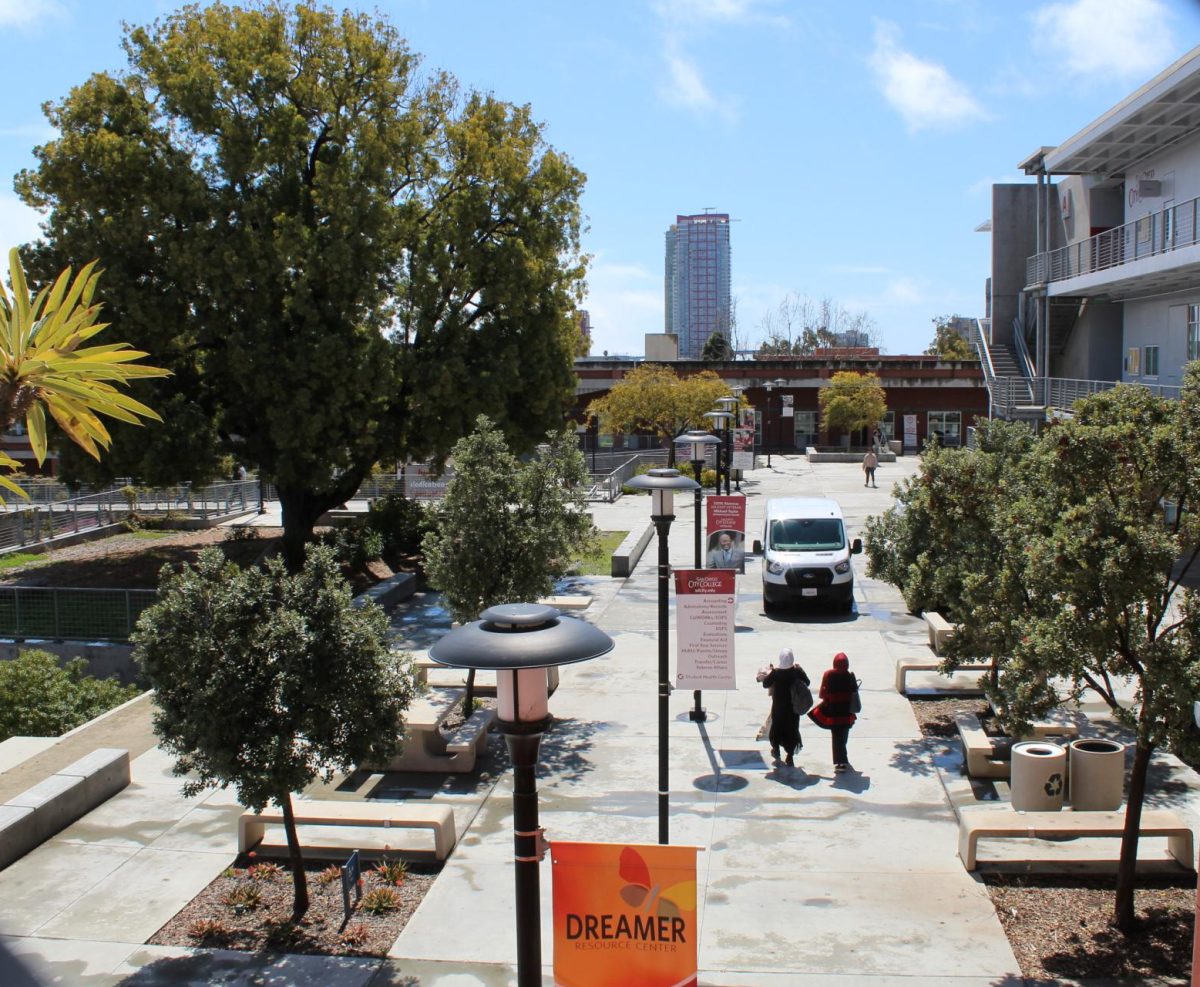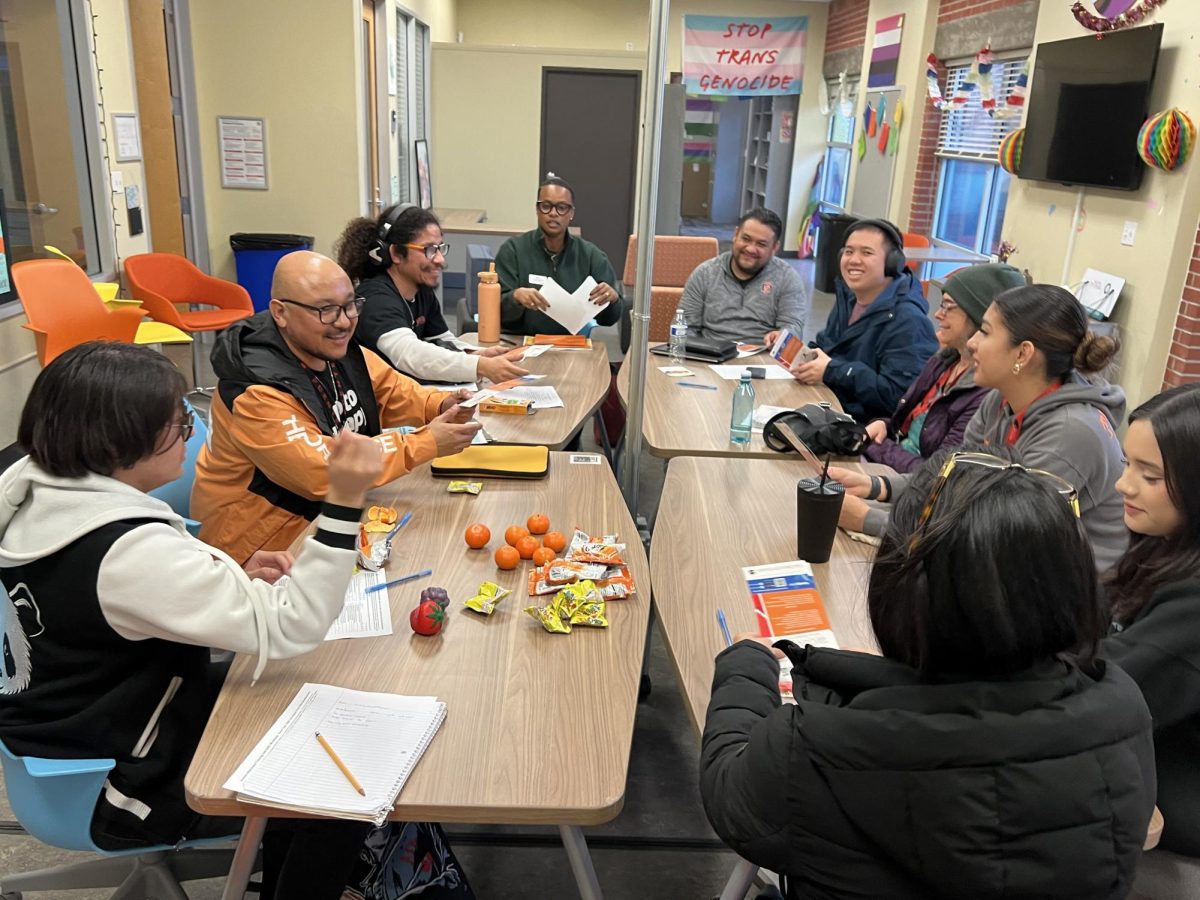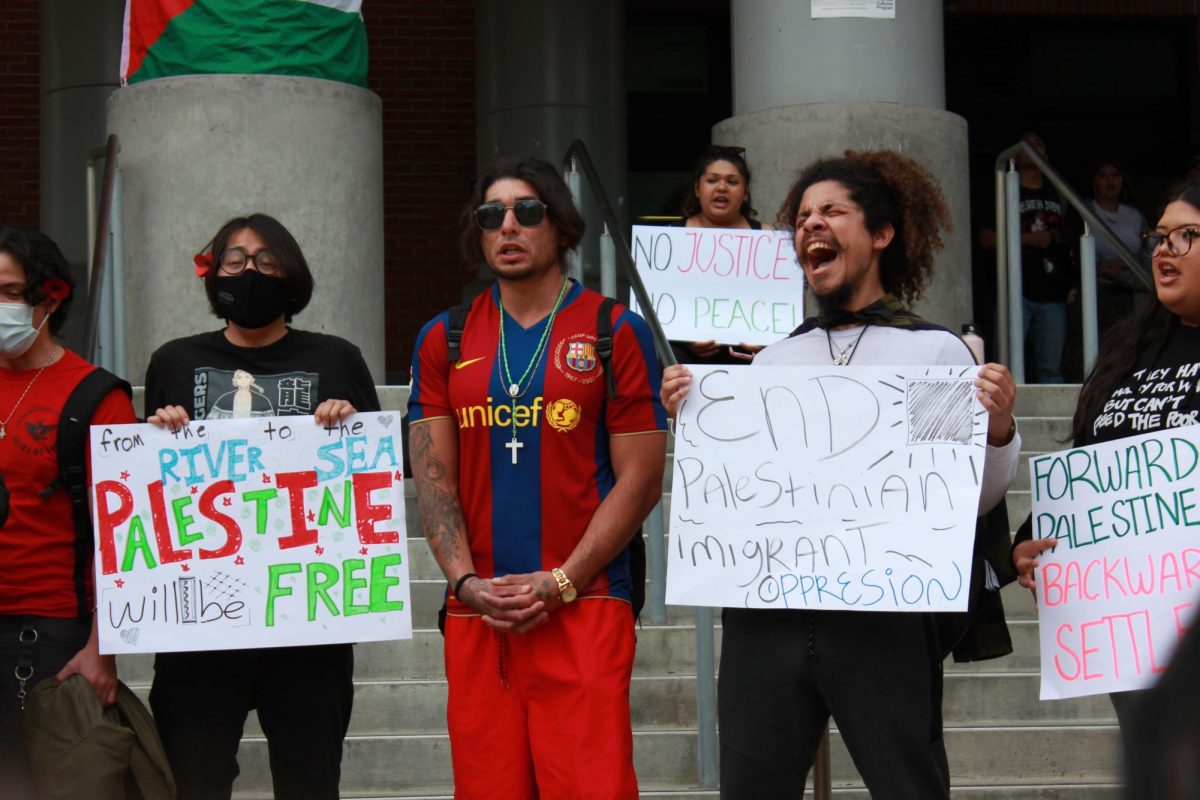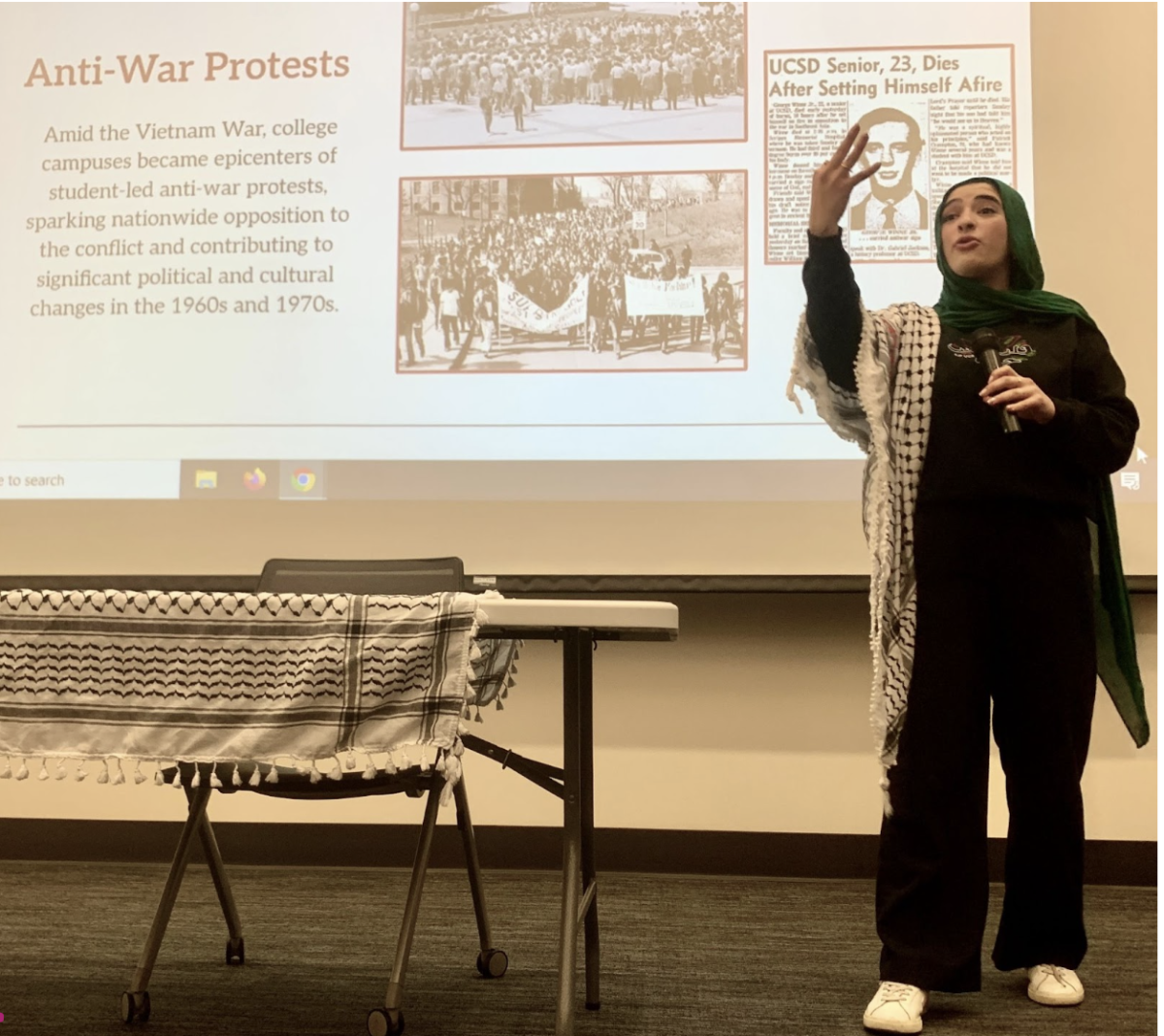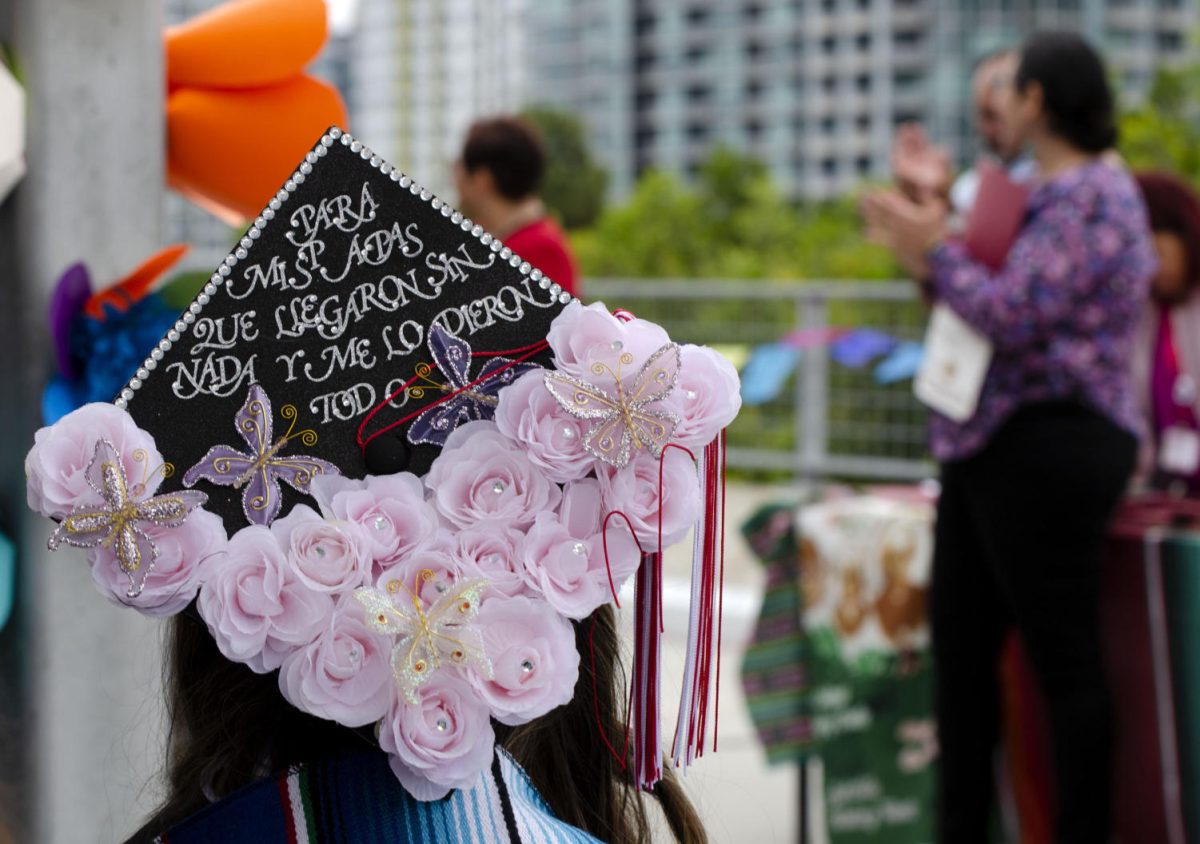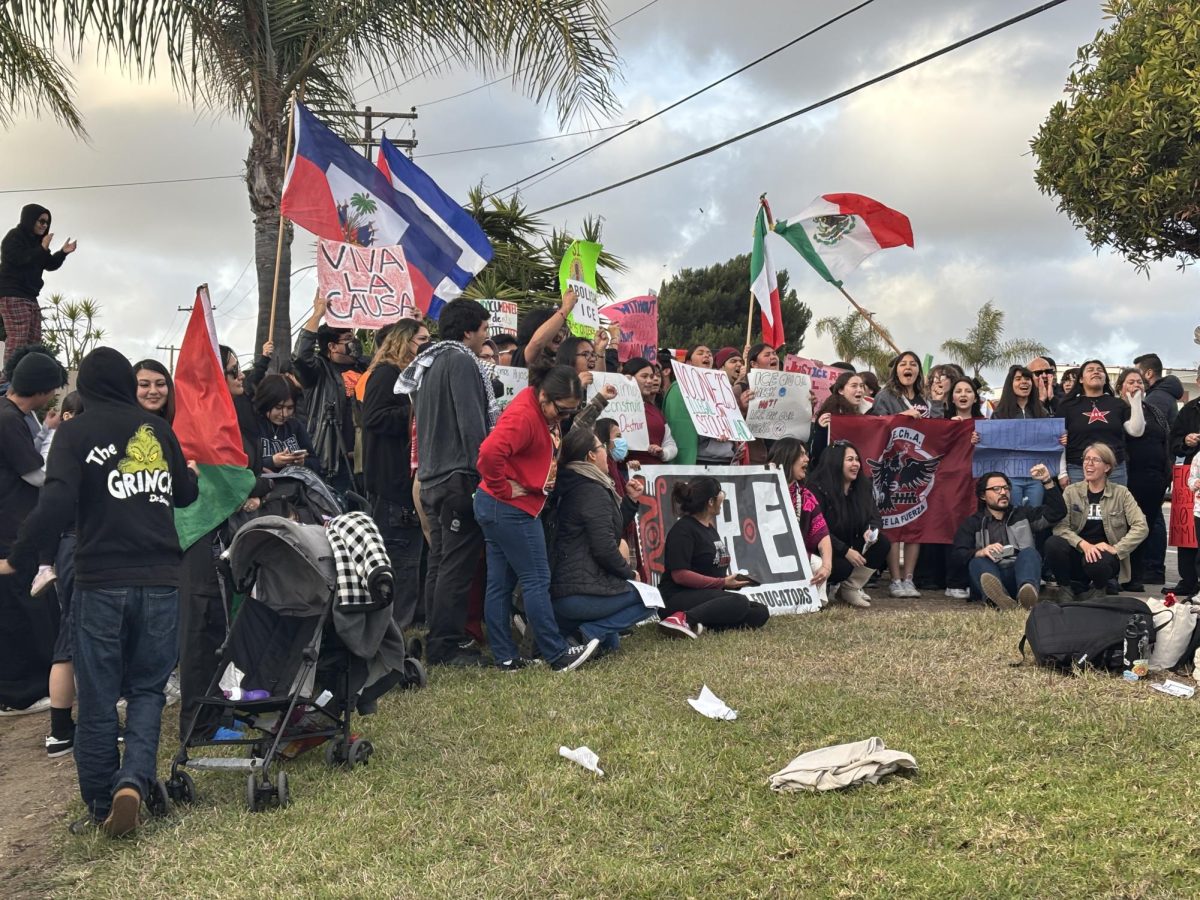Award winning filmmaker Eren McGinnis returned to City College and presented her film “Beyond the Border” at a World Cultures event on Oct. 16 to a packed room.
The film follows the Ayalas, a migrant family from Mexico who leave their home country to find low-paying jobs in the horseracing industry in the state of Kentucky.
The Ayalas’ story mirrors the experiences of the more than 40,000 Latinos that have traveled to the midwest over the years to find work. The story follows four of the brothers in the family, and examines how they adjust to the culture and new experiences they encounter as they begin their new lives across the border.
Over the past decade, many Latinos seeking better opportunities have migrated to states in the Midwest, such as Kentucky, that offer low-paying jobs in the tobacco, manufacturing and horseracing industries. As these Latino communities have grown, so has the discrimination they face.
“Beyond the Border,” which was made over 10 years ago, begins in June of 1998, and introduces 17-year-old Marcelo, the youngest in his family, as he prepares to leave his home in Michoacán, Mexico. He follows in the path of his three brothers who had all previously left in the same manner, and who risked their lives during dangerous journeys to the U.S. in search of work.
“I was living in Kentucky. I noticed there was a shift. Mexicans were just coming to work. Kentucky is what I like to call ‘very Southern.’ The South is changing more rapidly than any place in the U.S.,” McGinnis said, “I thought it’d be interesting to see what it’s like for an outsider.”
The film continues with Gonzalo, Marcelo’s eldest brother, seeing his life unravel due to alcoholism, and speaking of the three failed marriages and children he cannot see, as well as the looming threat of facing jail time.
Because of this, Juan, the second eldest, has become an anchor for the family after moving to the U.S. at 14 and marrying an American woman, Patricia, at 15. He has been able to build stability in the U.S. by both finding a job and starting a family, and his U.S. citizenship status has given him the power to help his brothers.
Horacio, the second youngest, moves to Versailes, Kentucky, with his ill and pregnant wife in search of work and better healthcare.
“It wasn’t a goal to do that here,” he says, detailing how his job requires him to clean up horse and cow urine and feces. “I had no idea what I was getting into…but being able to send money is the most important thing.”
McGinnis also encounters the Ayala patriarch Marcial and his wife Carmen, as well as their daughters Lupe, Carmen and Elena. Lupe and Carmen, who would like to immigrate the U.S. but remain behind with their Mexican husbands and the baby of the family Elena, dreams of education and gaining income for the family.
“Economically, I’m better off here. But at home, I have my friends and family. I miss Mexico very much. I want more than anything to be home soon,” Marcelo says after spending four months in the U.S.
As the months go by, Marcelo’s emotions depress. “I feel sad. How long has it been already?” he says, his homesickness growing into desperation as he speaks to his mother on the phone. “…If God is willing, I’ll be there for Christmas. Or New Years. But I’ll be there as soon as I can. I don’t want you working one more day.”
By the end of the hour-long film Marcelo is able to return home for Christmas, and finds a better horse trainer who provides him free healthcare and higher pay.
“I haven’t seen it in a long time,” McGinnis said after the screening, “It was interesting to see it with all of you and hear your reactions.
McGinnis said that all members of the Ayala family are currently living in the U.S., but without their matriarch, Carmen, who had passed away.
“There’s much more pride now in culture and heritage,” McGinnis said about what’s changed in the decade since the movie’s completion. “…There’s more pride in language now and in being bilingual…Immigration has gotten harder. I think this family was very lucky.”
McGinnis has produced several award-winning documentaries for PBS. Her other credits include “Precious Knowledge” and “The Spirituals.”
For more information visit www.dosvatos.com.
For more information on World Cultures events visit www.sdcity.edu/worldcultures.


